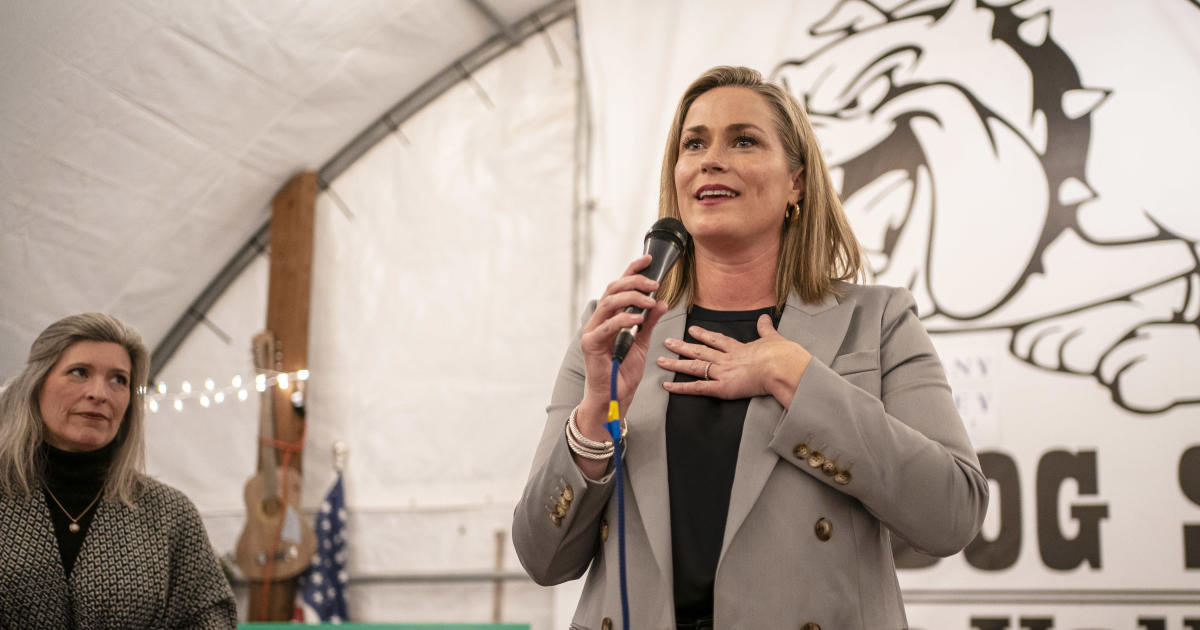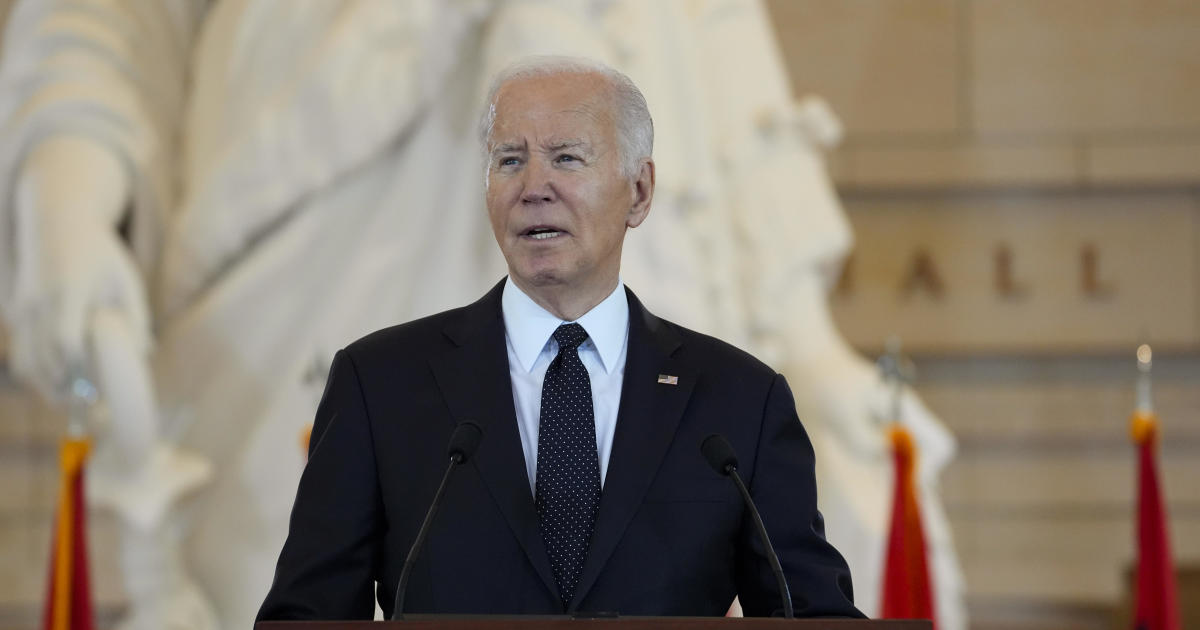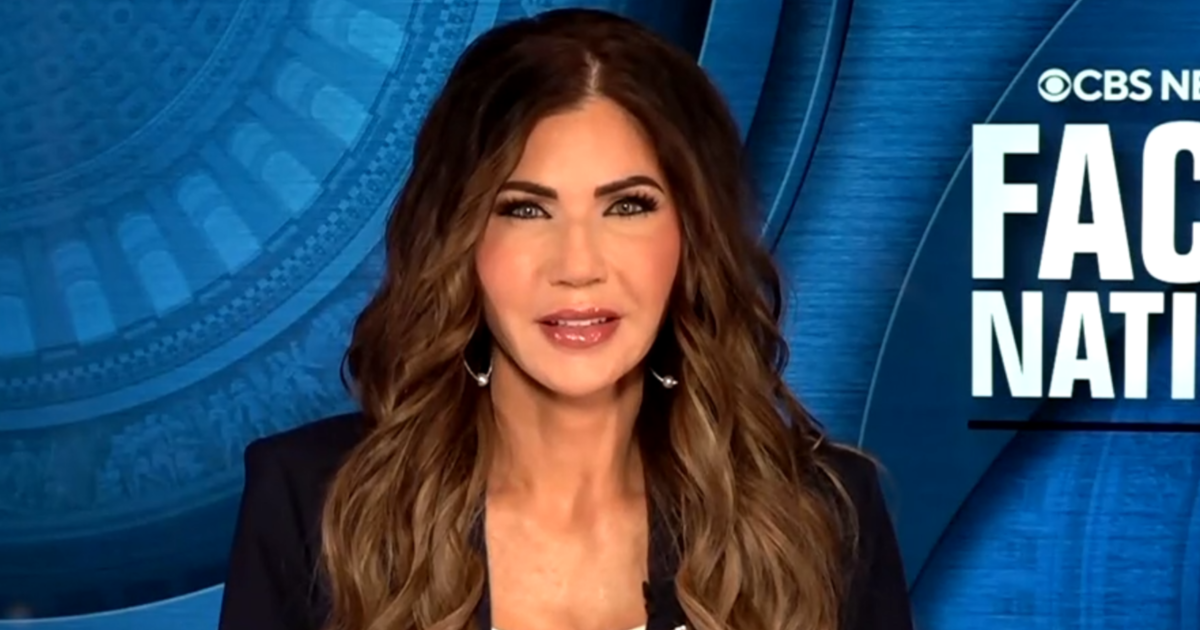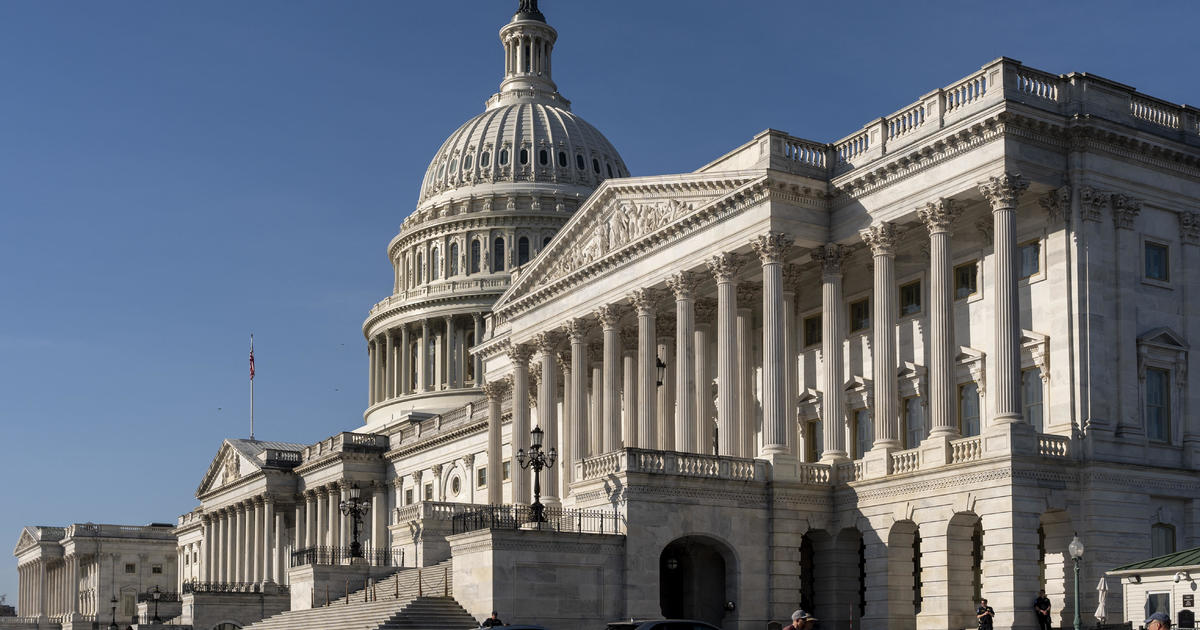"We are Americans": House committee hears testimony on rise in anti-Asian American crimes
Several Asian American lawmakers testified Thursday on Capitol Hill on the rise in violence and discrimination against Asian Americans amid the COVID-19 pandemic, saying the words of former President Trump and other Republicans have inflamed tension.
The House Judiciary Committee hearing was scheduled before a gunman opened fire at three Atlanta-area spas, killing eight people, including six women of Asian descent, dead. The suspected gunman, 21-year-old Robert Aaron Long, denied the attack was racially motivated but officials said it was still too early to rule out a hate crime. Long told investigators he had a "sex addiction" and viewed the spas as a temptation he wanted to eliminate, officials said.
At Thursday's hearing, Congresswoman Judy Chu of California, the chairwoman of the Congressional Asian Pacific American Caucus, referenced the escalation of attacks against the AAPI community and that Mr. Trump's rhetoric contributed to the rise in the attacks.
"They were stoked by the words of former President Donald Trump who sought to shift blame and anger away from his own flawed response to the coronavirus," Chu testified.
Congresswoman Grace Meng of New York, who in February reintroduced a bill to address anti-Asian American hate crimes, responded to earlier comments from Republican Congressman Chip Roy, who earlier had expressed concern that the hearing will "venture into the policing of rhetoric in a free society."
"Your president and your party and your colleagues can talk about issues with any other country that you want, but you don't have to do it by putting a bull's eyes on the back of Asian Americans across this country, on our grandparents, on our kids," Meng said. "This hearing was to address the hurt and pain of our community to find solutions and we will not let you take our voice away from us."
Meng also implored the committee to consider the COVID-19 Hate Crimes Act would designate an individual at the Department of Justice expeditiously review hate crimes related to COVID-19, while also making it easier for people to report these crimes to state and local agencies.
The hearing comes amid a spike in assaults on Asian Americans nationwide. A report released this week said the Stop AAPI Hate reporting center received nearly 3,800 reports of hate incidents, including verbal harassment, shunning and physical assault, from March 19, 2020, to February 28 this year.
There was some pushback Thursday from Republicans, with Roy, a Republican from Texas, saying he was concerned that this hearing will "venture into the policing of rhetoric in a free society, free speech and away from the rule of law and taking out bad guys." Roy later criticized the Chinese Communist Party and said "all Americans deserve protection."
"We believe in justice. There's old sayings in Texas about you know, 'Find all the rope in Texas and get a tall oak tree' you know, we take justice very seriously. We ought to do that. Round up the bad guys," Roy said. He refused to apologize for his comments at the hearing, according to a statement from his office.
Republican congressman Tom McClintock from California also pushed back on the scope of the hearing. "To attack our society as systematically racist, a society that has produced the freest, most prosperous, harmonious multiracial society in human history, well, that's an insult. And it's flat-out wrong," McClintock said.
Representative Jamie Raskin of Maryland asked the panel of witnesses about Republicans' concerns about free speech. John Yang, the President of Asian Americans Advancing Justice, said "leaders have an obligation to model behavior that we want our community to follow" instead of trying to be divisive.
Congressman Ted Lieu from California, who served active duty in the U.S. Air Force, made an appeal in his testimony to Republican lawmakers to stop using racist terms including 'Kung flu' or 'Wuhan virus' for describing the coronavirus pandemic. "I am not a virus. And when you say things like that, it hurts the Asian American community," Lieu said.
"This hearing is about Americans of Asian descent who are being targeted in the United States. It's not about policing speech," Lieu added.
Congressman Steve Cohen, the chair of the Subcommittee on the Constitution, Civil Rights, and Civil Liberties, in his opening remarks emphasized that "anti-Asian hate did not begin with the COVID-19 pandemic, and it will not end when the pandemic is over. All the pandemic did was exacerbate latent anti-Asian prejudices that have a long and ugly history in America."
Senator Tammy Duckworth emphasized that the AAPI community must not be blamed for the COVID-19 pandemic. "Blaming the AAPI community for a public health crisis is racist and wrong," Duckworth said.
Representatives Young Kim and Michelle Steel, who both represent California, also testified.
"This should not have to be said but I want to be very clear. No American of any race or ethnic group is responsible for the COVID-19 pandemic," Kim said. "The virus does not discriminate. It affects everyone."
Actor and activist Daniel Dae Kim, one of the witnesses, said in his opening remarks that this moment will "send a message to generations to come." He said the AAPI community is "23 million strong. We are united. And we are waking up."
Witness Erika Lee, a professor of history and Asian American studies at the University of Minnesota, said there needs to be a dissociate between foreign governments and Asian American.
"We are Americans. We are Americans of Asian descent. We are proud of that ancestry and heritage. But conflating us with a foreign government has been an age-old way of denigrating us, separating us, making us other," Lee said.



